
Bray: Ireland's Seaside Gem
Nestled along the eastern coastline of Ireland, Bray is a charming seaside town that effortlessly blends natural beauty with cultural richness. Known as the 'Gateway to the Garden of Ireland,' Bray offers visitors a delightful mix of scenic landscapes, historical landmarks, and vibrant local life. Take a leisurely stroll along Bray's famous Victorian promenade, stretching over a mile and offering stunning views of the Irish Sea. The promenade is lined with cozy cafes, ice cream parlors, and traditional pubs, making it the perfect spot to relax and soak in the coastal charm. Don't miss a visit to Bray Head, a prominent hill that provides panoramic vistas of the town and the surrounding countryside. The hike is rewarding and gives you a sense of the region's natural splendor. For those interested in history and culture, Bray has plenty to offer. Visit the Bray Heritage Centre to learn about the town's rich past, or explore the iconic Killruddery House and Gardens, a majestic estate that dates back to the 17th century. The town also boasts a vibrant arts scene, with regular festivals, live music, and theater performances that provide a taste of local talent and creativity. Whether you're an outdoor enthusiast, a history buff, or simply looking for a tranquil escape by the sea, Bray has something to offer every traveler. Its friendly locals and picturesque setting make it a must-visit destination on Ireland's east coast.
Local tips in Bray
- Visit early in the morning to enjoy the promenade with fewer crowds.
- Wear comfortable walking shoes, especially if you plan to hike Bray Head.
- Check local event calendars for festivals and live performances during your stay.
- Try the local seafood at one of the town's traditional pubs.
- Take a day trip to nearby Powerscourt Estate, just a short drive away.
Bray: Ireland's Seaside Gem
Nestled along the eastern coastline of Ireland, Bray is a charming seaside town that effortlessly blends natural beauty with cultural richness. Known as the 'Gateway to the Garden of Ireland,' Bray offers visitors a delightful mix of scenic landscapes, historical landmarks, and vibrant local life. Take a leisurely stroll along Bray's famous Victorian promenade, stretching over a mile and offering stunning views of the Irish Sea. The promenade is lined with cozy cafes, ice cream parlors, and traditional pubs, making it the perfect spot to relax and soak in the coastal charm. Don't miss a visit to Bray Head, a prominent hill that provides panoramic vistas of the town and the surrounding countryside. The hike is rewarding and gives you a sense of the region's natural splendor. For those interested in history and culture, Bray has plenty to offer. Visit the Bray Heritage Centre to learn about the town's rich past, or explore the iconic Killruddery House and Gardens, a majestic estate that dates back to the 17th century. The town also boasts a vibrant arts scene, with regular festivals, live music, and theater performances that provide a taste of local talent and creativity. Whether you're an outdoor enthusiast, a history buff, or simply looking for a tranquil escape by the sea, Bray has something to offer every traveler. Its friendly locals and picturesque setting make it a must-visit destination on Ireland's east coast.
When is the best time to go to Bray?
Iconic landmarks you can’t miss
Powerscourt House & Gardens
Discover the beauty and history of Powerscourt House & Gardens, a world-renowned estate in the heart of County Wicklow, Ireland's garden.
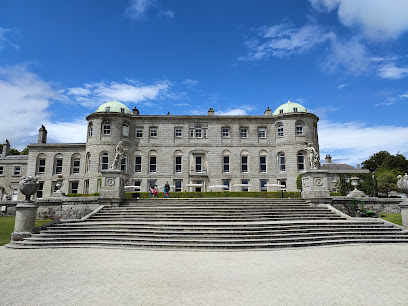
Bray Seafront
Experience the charm of a Victorian seaside resort at Bray Seafront, offering stunning views, lively entertainment, and a taste of Irish hospitality.
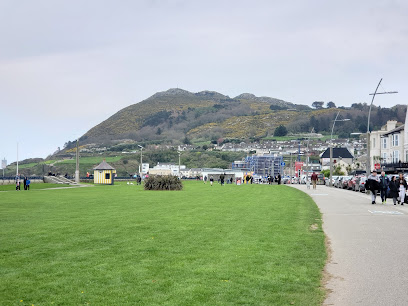
Bray Head Cross
Hike to the iconic Bray Head Cross for breathtaking panoramic views of the Wicklow coastline, Dublin Bay, and a touch of Irish history.
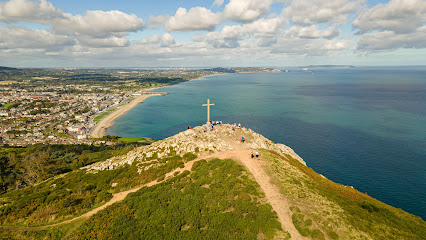
Star Leisure & Casino
Experience seaside entertainment at Star Leisure & Casino in Bray, offering gaming thrills and family fun on the scenic coastline.
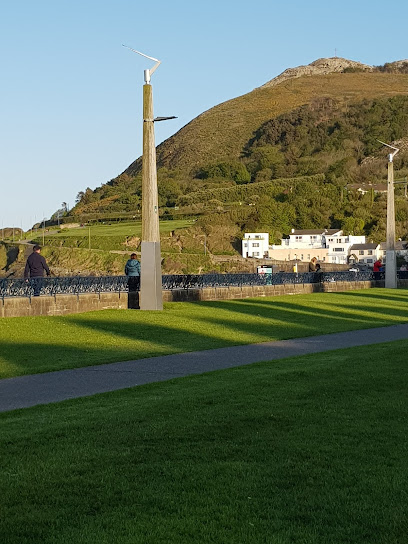
Killruddery House & Gardens
Discover historic gardens, tour a grand house, and experience the beauty of the Irish countryside at Killruddery House & Gardens.
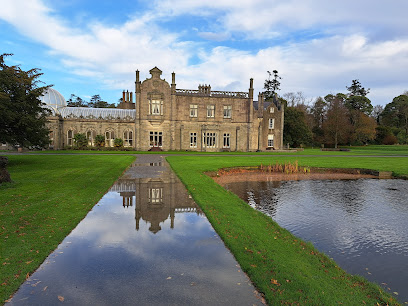
Bray Head Cliff Walk
Experience breathtaking coastal views on this scenic walk between Bray and Greystones, County Wicklow. A perfect Irish adventure!
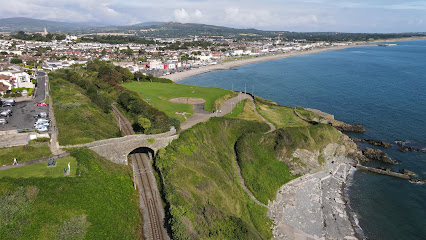
Squirrel's Scramble
Experience an exhilarating treetop adventure at Squirrel's Scramble in Killruddery Estate, Bray. Zip lines, rope bridges, and outdoor fun for all ages!
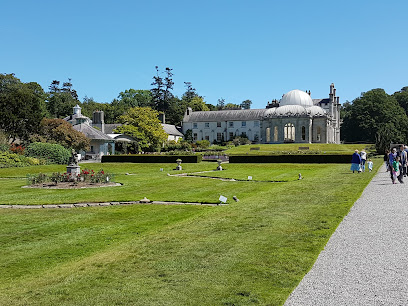
Bray Promenade and Beach
Experience the charm of a Victorian seaside resort at Bray Promenade, with stunning views, lively entertainment, and a beautiful beach.
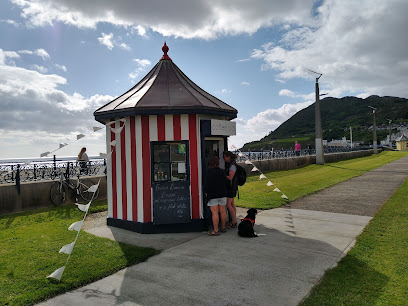
Bray Head
Hike to the summit of Bray Head in County Wicklow for breathtaking coastal views, historical landmarks, and a refreshing escape into nature.
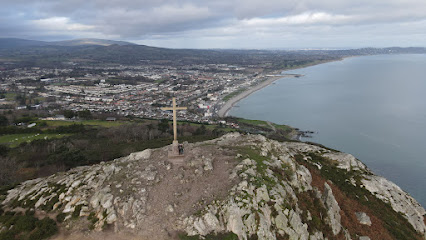
The Holy Redeemer Catholic Church, Bray
A blend of architectural styles and community spirit in the heart of Bray, County Wicklow.
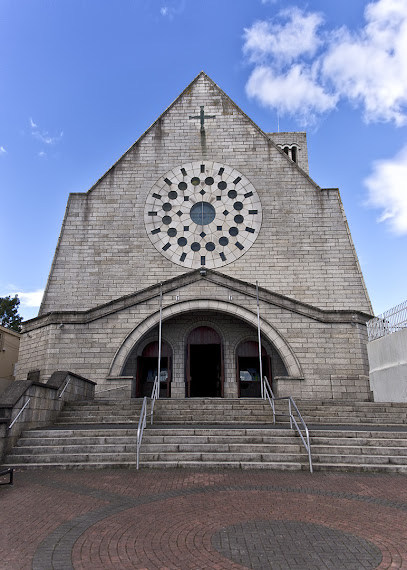
Raheen-A-Cluig
Discover the historic Raheen-a-Cluig in Bray: a medieval church ruin with stunning coastal views, rich history, and local legends.
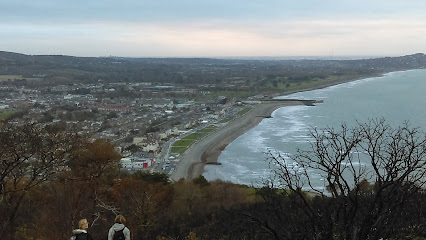
Alive Outside Adventure Centre
Experience the thrill of outdoor adventures at Alive Outside Adventure Centre in Bray, Co. Wicklow, where excitement meets nature.
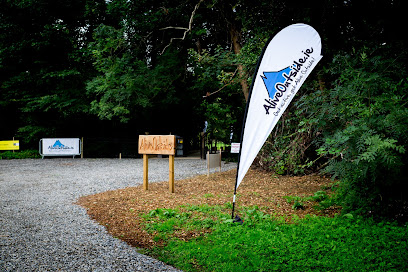
Oldcourt castle
Explore Oldcourt Castle in Bray, a medieval tower house offering a glimpse into Ireland's captivating history and scenic landscapes.
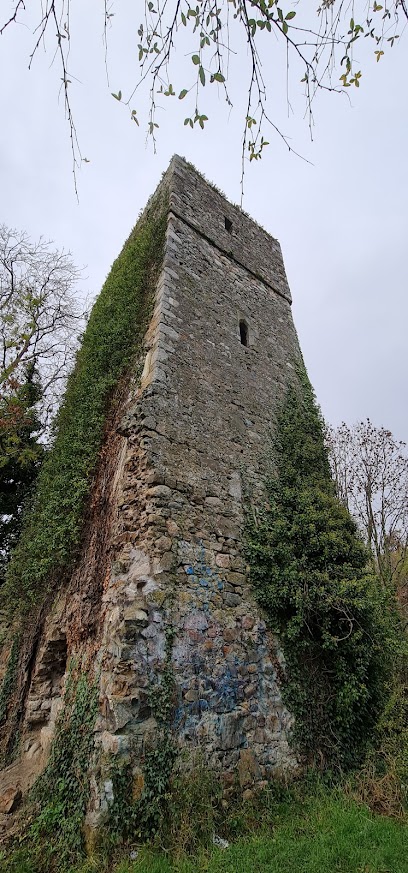
KilIruddery Estate
Explore Killruddery Estate: a historic house and gardens with a working farm, cultural events, and stunning scenery in County Wicklow, near Dublin.
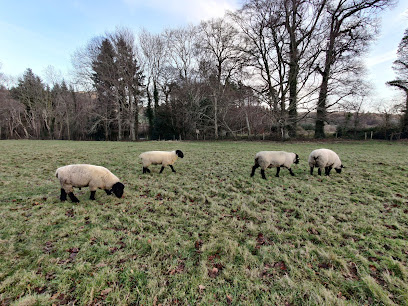
Airshow Bray
Experience thrilling aerobatics and breathtaking displays at Ireland's biggest air festival on Bray's stunning seafront. A free family event!
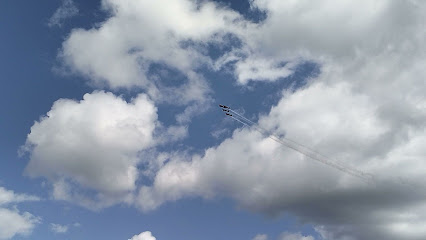
Unmissable attractions to see
Phoenix Park
Discover Dublin's vast green space: history, wildlife, gardens, and recreation in one of Europe's largest urban parks.
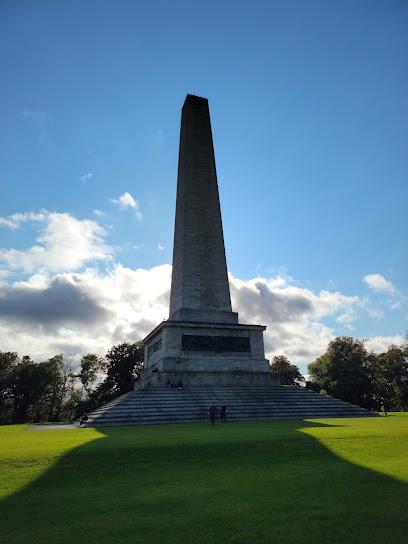
The Temple Bar Pub
Experience the heart of Dublin's vibrant pub culture at The Temple Bar Pub, a historic landmark offering traditional music, Irish hospitality, and a lively atmosphere.
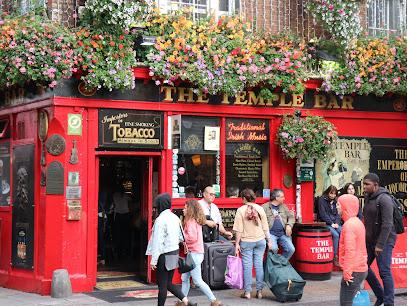
St Stephen's Green
Escape to Dublin's most beloved Victorian park, a 22-acre green space with gardens, a lake, monuments, and a rich history.
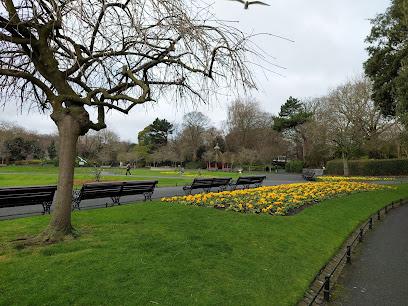
Dublin Castle
Explore Dublin Castle: From Viking fortress to the heart of Irish history, discover opulent state rooms and medieval secrets in Dublin's city center.
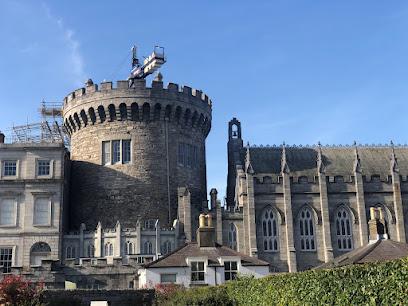
Dublin Zoo
Discover wildlife from around the globe in the heart of Dublin at one of the world's oldest and most respected zoos.
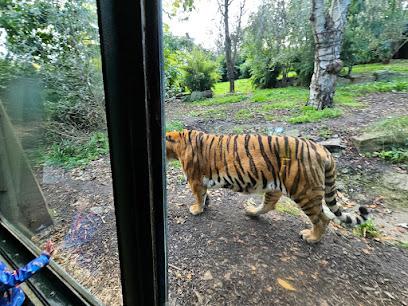
St Patrick's Cathedral
Explore Dublin's iconic St Patrick's Cathedral: a historic landmark with stunning Gothic architecture and a rich cultural heritage.
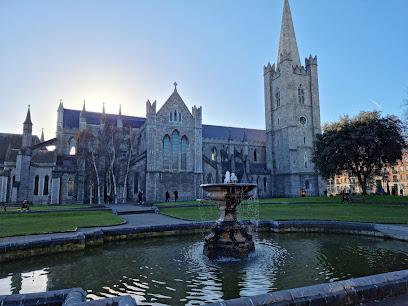
Croke Park
Experience the passion of Gaelic games and Irish history at Croke Park, Dublin's iconic stadium and the heart of Irish sporting culture.
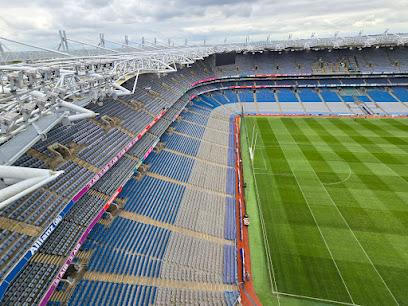
Guinness Storehouse
Discover the history, heart, and soul of Ireland's most iconic beer at the Guinness Storehouse, culminating in panoramic views and a perfect pint.
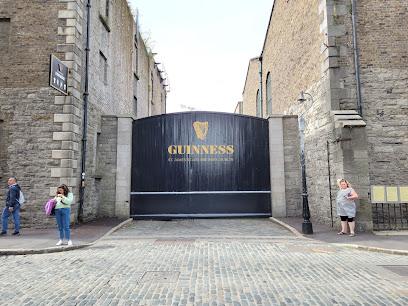
National Botanic Gardens
Discover a world of plants and tranquility at Dublin's National Botanic Gardens, a free and beautiful escape in the heart of Glasnevin.
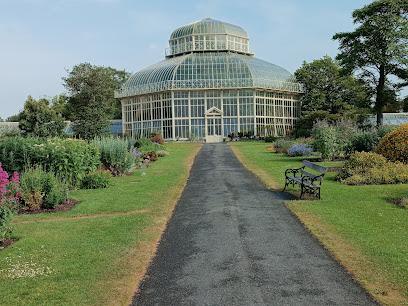
3Arena
Experience world-class entertainment at Dublin's 3Arena, a premier venue for music, comedy, and sports in the heart of the Docklands.
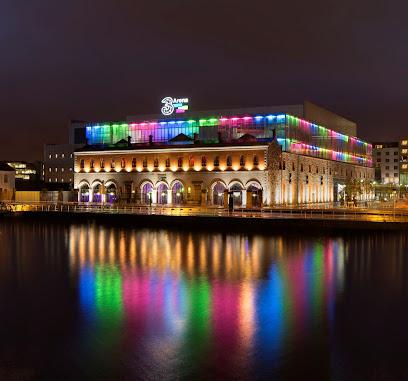
National Gallery of Ireland
Discover masterpieces of Irish and European art at the National Gallery of Ireland in Dublin. Free admission and open daily!
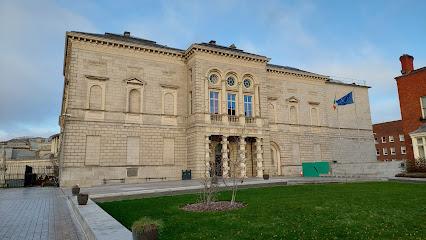
Malahide Castle & Gardens
Explore a medieval castle with centuries of history, surrounded by beautiful gardens and parkland, just a short trip from Dublin.
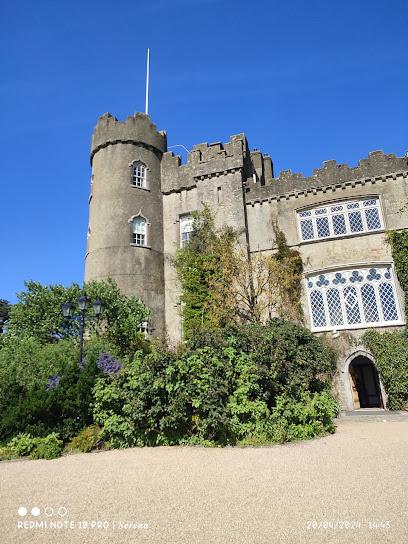
Paddywagon Tours Ltd
Discover the beauty of Ireland with Paddywagon Tours, your gateway to unforgettable adventures through stunning landscapes and rich history.
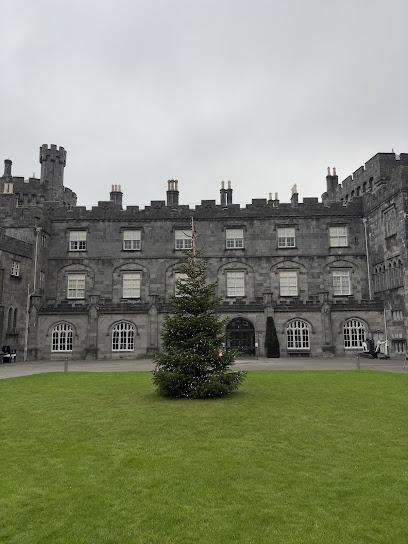
The Book of Kells Experience
Discover Ireland's greatest cultural treasure, the Book of Kells, and explore the historic Trinity College Dublin.
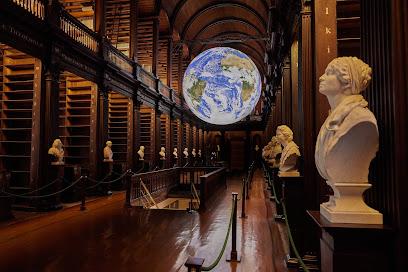
Ha'penny Bridge
Walk across Dublin's iconic Ha'penny Bridge, a historic cast-iron footbridge offering scenic city views and a charming glimpse into the past.
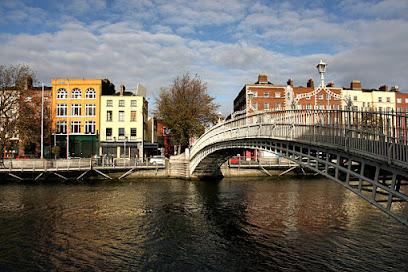
Essential places to dine
The Martello Hotel
Experience seaside dining at The Martello Hotel in Bray - where delicious food meets vibrant atmosphere along Ireland's beautiful coast.

Platform Pizza Bar Bray
Discover delicious pizzas and a welcoming atmosphere at Platform Pizza Bar in Bray—perfect for families and friends alike.
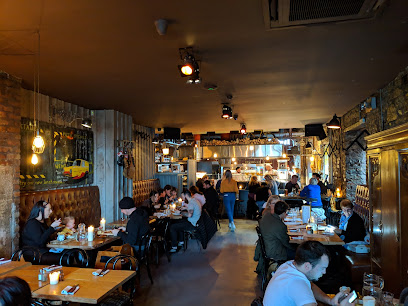
Butler & Barry
Discover the flavors of Ireland at Butler & Barry - where traditional meets modern in an inviting gastropub setting.
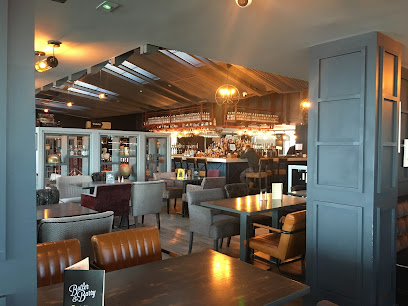
Killruddery House & Gardens
Explore Killruddery House & Gardens: A stunning blend of history, nature, and culinary delights in beautiful Co. Wicklow.
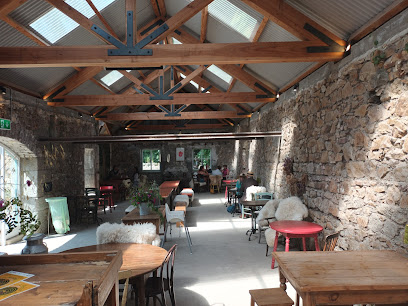
The Martello Bar
Discover The Martello Bar in Bray: where delicious grill cuisine meets breathtaking sea views for an unforgettable dining experience.
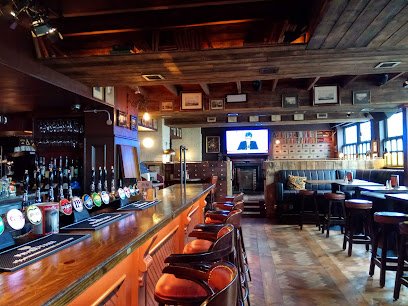
Dockyard No.8
Discover Dockyard No.8 in Bray - A charming brunch haven offering fresh local cuisine with stunning harbor views.
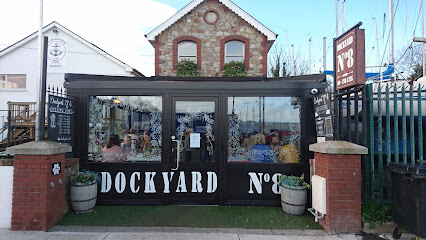
Daata Bray
Experience authentic Pakistani cuisine at Daata Bray - where every dish tells a story amidst stunning coastal views.
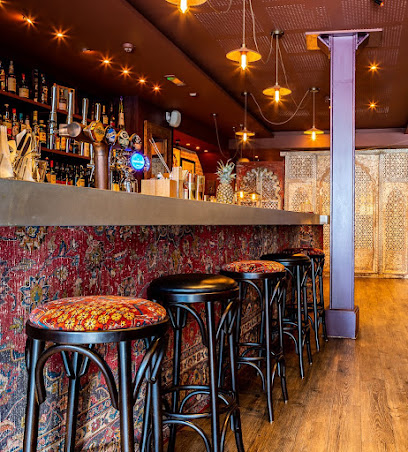
The Wild Goose
Experience the best of Irish cuisine at The Wild Goose in Bray - where tradition meets modernity in a warm gastropub setting.
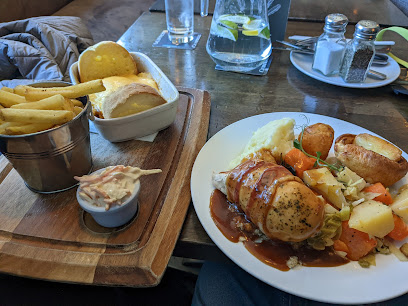
Pink Salt Indian Restaurant
Experience authentic Indian flavors at Pink Salt Indian Restaurant in Bray, where every dish tells a story of tradition and taste.
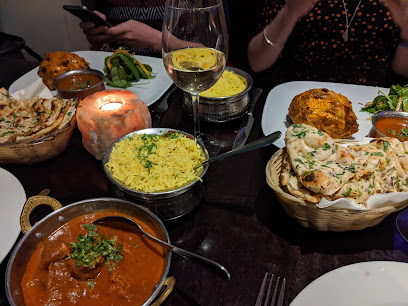
Coffee Delights
Discover the charm of Coffee Delights in Bray - where delicious breakfasts meet expertly brewed coffee in a cozy atmosphere.
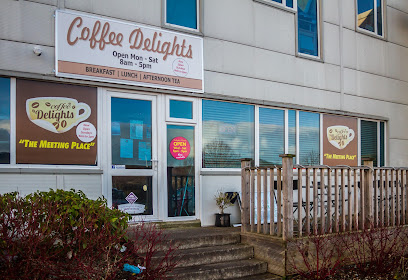
Ocean Bar & Grill Bray
Experience delightful dining at Ocean Bar & Grill in Bray – where fresh seafood meets breathtaking ocean views.
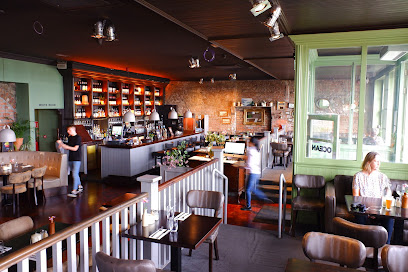
Bochelli
Experience exquisite dining at Bochelli in Greystones - where local ingredients meet international culinary delights.
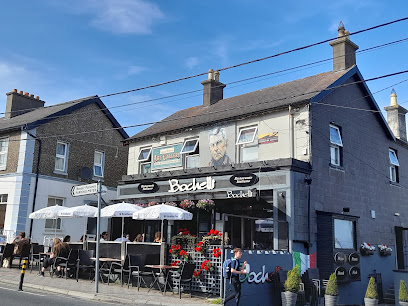
The Enniskerry Inn
Experience warm Irish hospitality at The Enniskerry Inn - your perfect blend of dining and accommodation amidst Wicklow's stunning landscapes.
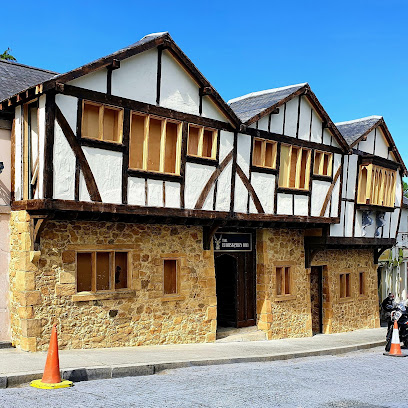
Avoca Fern House Cafe
Experience the best of Irish cuisine at Avoca Fern House Cafe nestled in the picturesque Co. Wicklow countryside.
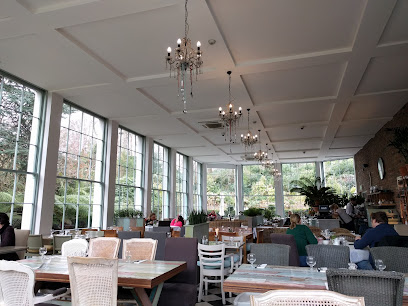
Henry & Rose Super Fast Food
Experience authentic Irish fast food at Henry & Rose Super Fast Food in Bray – home of delicious fish and chips!
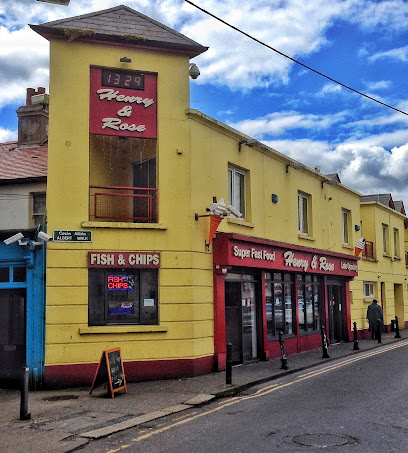
Markets, malls and hidden boutiques
Dealz
Explore Dealz in Bray for unbeatable prices on clothing, household goods, and everyday essentials, making your visit to this charming town even more enjoyable.
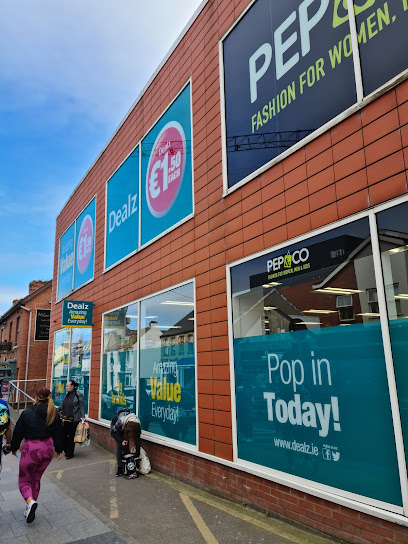
Bray Retail Park
Explore Bray Retail Park: Your ultimate shopping destination in Wicklow with diverse shops, cafes, and family-friendly spaces.
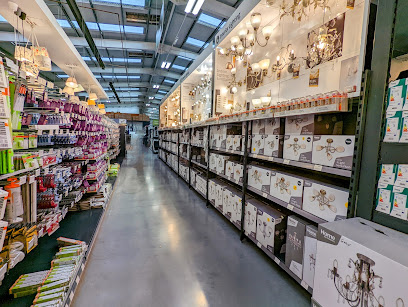
SuperValu
Experience the best of local shopping at SuperValu Bray, featuring fresh produce, artisanal baked goods, and a taste of Ireland.
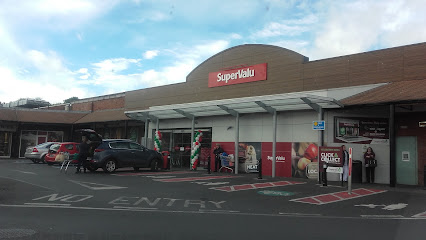
Dubray Books
Explore the enchanting world of literature at Dubray Books in Bray, where every book tells a story waiting to be discovered.
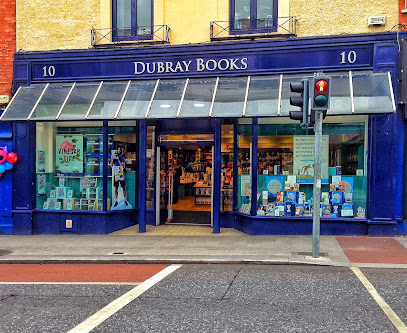
Dunnes Stores- Bray
Discover the best of fashion and home goods at Dunnes Stores in Bray, where quality meets style in a vibrant shopping environment.
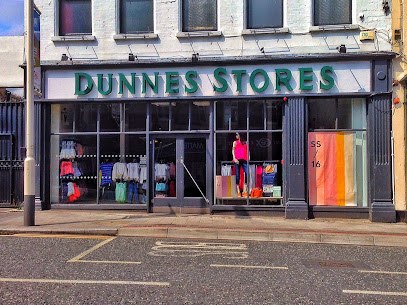
Tesco Superstore
Experience the convenience of Tesco Superstore in Bray, where local flavors meet everyday essentials for every traveler.
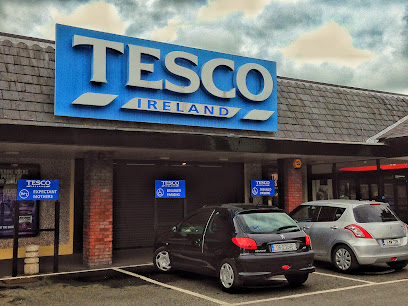
Polonez Bray
Discover the vibrant atmosphere of Polonez Bray, a local supermarket offering a wide selection of Irish and international products for every traveler.
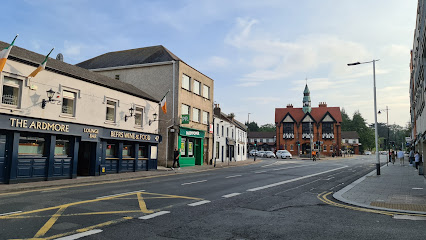
Tony's Asian Market
Tony's Asian Market in Bray is your gateway to authentic Asian groceries, specialty snacks, and unique drinks, perfect for culinary explorers.
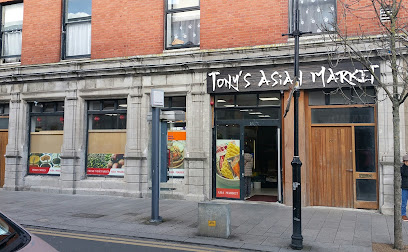
Flying Tiger Copenhagen
Explore the whimsical world of Flying Tiger Copenhagen in Bray, where unique gifts and delightful surprises await every shopper.
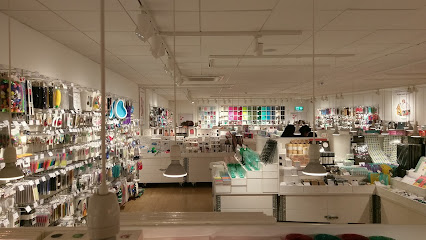
Finders Keepers
Explore Finders Keepers in Bray for an unparalleled selection of vintage clothing and accessories that add a unique flair to your wardrobe.
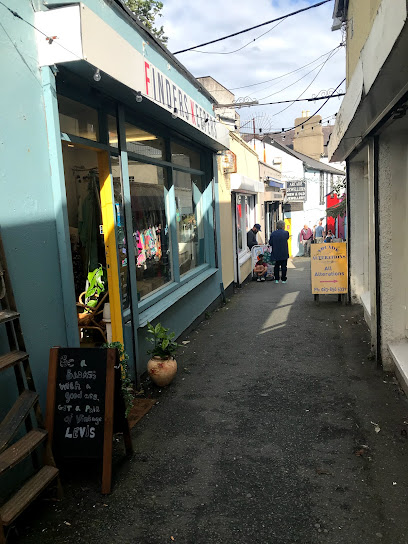
O'Briens Wine Off-Licence Bray Quinsborough Road
Experience the finest selection of wines at O'Briens Wine Off-Licence in Bray, where quality meets expertise in a charming setting.
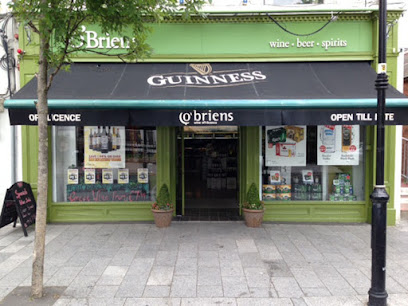
Chuan Jin Lin Asian Supermarket
Discover a world of authentic Asian flavors at Chuan Jin Lin Asian Supermarket in Bray, where culinary delights await around every corner.
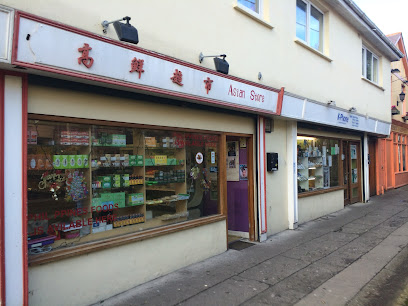
Tesco Express
Discover Tesco Express in Bray for all your grocery needs, offering convenience, quality, and a taste of local life in the heart of Wicklow.
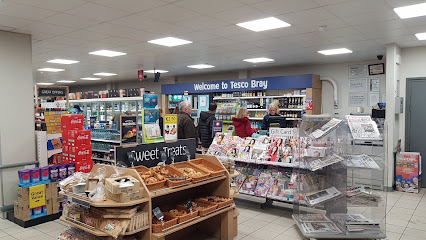
Bannon Jewellers
Discover the elegance of handcrafted jewelry at Bannon Jewellers in Bray, where tradition and artistry meet exquisite design.
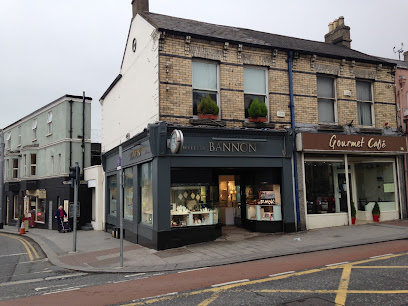
Bray Central
Explore Bray Central, a dynamic shopping mall in Bray, Co. Wicklow, offering a blend of retail, dining, and entertainment for all ages.
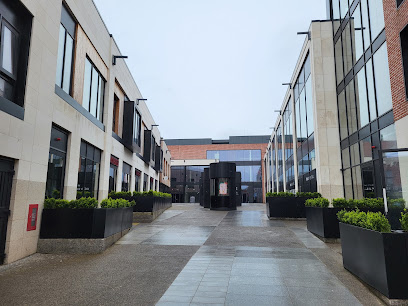
Essential bars & hidden hideouts
The Harbour Bar
Experience the charm of The Harbour Bar in Bray, where tradition meets taste with a vast beer selection and inviting atmosphere.
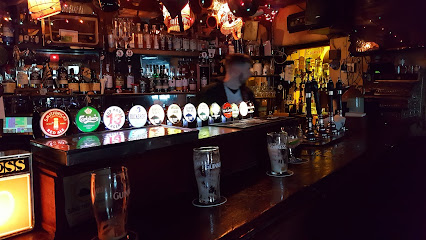
Butler & Barry
Discover Butler & Barry: A premier gastropub in Bray, offering modern Irish cuisine with stunning sea views and a warm, inviting atmosphere.
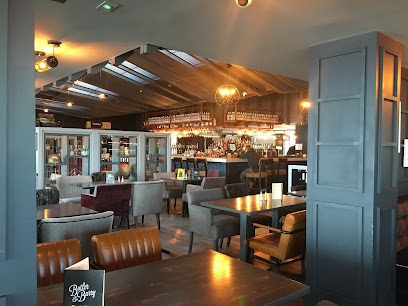
The Martello Bar
Experience the best of coastal dining at The Martello Bar in Bray, where delicious food meets stunning sea views for an unforgettable meal.
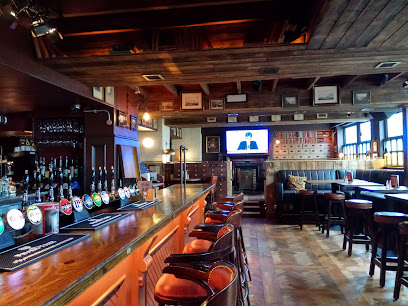
The Wild Goose
Experience the best of Bray at The Wild Goose, where exceptional gastropub cuisine meets warm Irish hospitality.
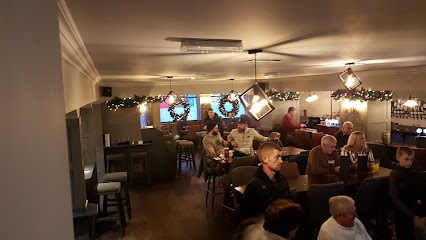
The Hibernia
Discover the vibrant atmosphere and stunning coastal views at The Hibernia in Bray, a perfect bar for relaxation and local culture.
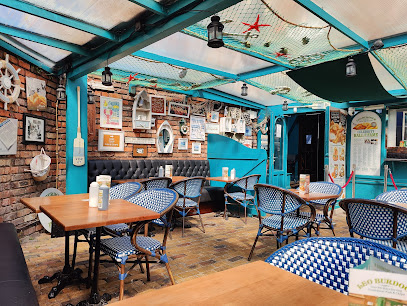
The Coach Inn
Experience authentic Irish hospitality at The Coach Inn, a charming pub in Bray with a warm atmosphere and delicious local cuisine.
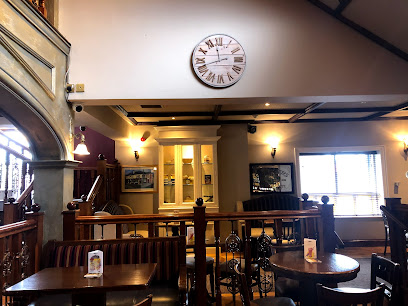
McGettigan's
Discover the heart of Irish culture at McGettigan's in Bray, where traditional flavors meet modern tastes in a vibrant pub setting.
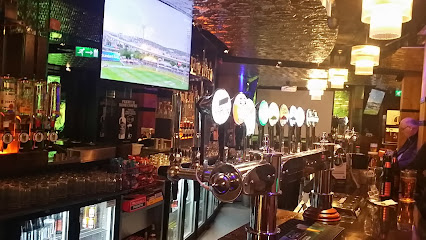
The Palm
Experience the best of Irish gastropub culture at The Palm in Bray, where culinary delights meet breathtaking coastal views.
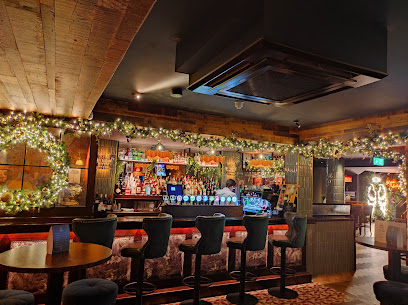
Frank Duffs
Experience the vibrant nightlife of Bray at Frank Duffs, where friendly faces and delicious drinks create unforgettable memories.
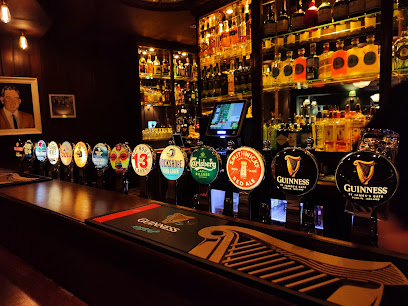
Carpe Diem
Savor the authentic tastes of Italy at Carpe Diem, an inviting Italian restaurant in Bray, Co. Wicklow, perfect for food lovers and casual diners alike.
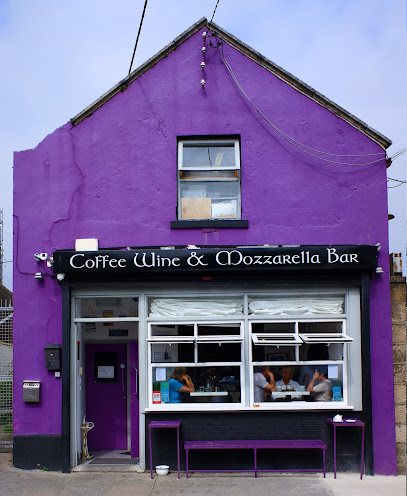
The Ardmore
Discover the warmth of Irish hospitality at The Ardmore, a charming pub in Bray, Co. Wicklow, perfect for enjoying local brews and hearty meals.
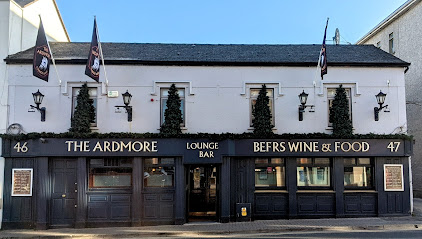
Mc's & Harvey
Discover the heart of Bray at Mc's & Harvey, where local flavors meet a cozy atmosphere in this charming gastropub.
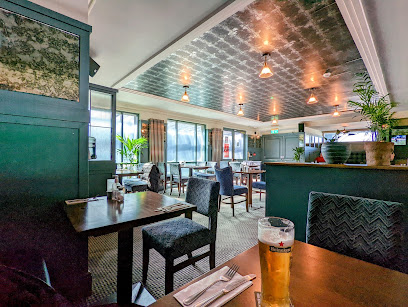
Wilde's Bar & Restaurant
Experience the taste of Ireland at Wilde's Bar & Restaurant in Bray, a gastropub blending tradition with modern flair for an unforgettable dining experience.
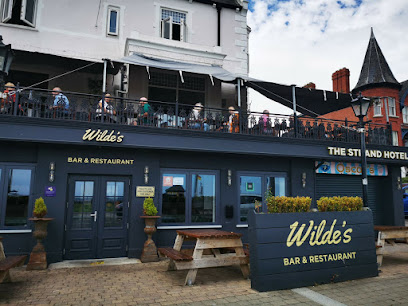
The Boomerang Bar
Experience the charm of Bray at The Boomerang Bar, where delightful drinks and friendly atmosphere await every visitor.
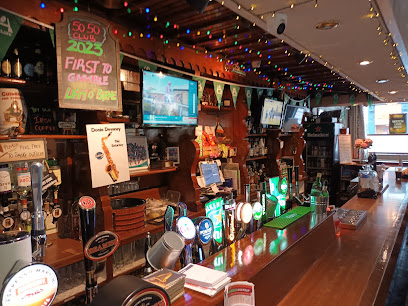
Local Phrases
-
- HelloHaigh
[hay] - GoodbyeSlán
[slawn] - YesSea
[sha] - NoNíl
[neel] - Please/You're welcomeLe do thoil
[leh duh hull] - Thank youGo raibh maith agat
[gur roh mah agut] - Excuse me/SorryMaith thú
[mah hoo] - How are you?Conas atá tú?
[kunus ah-taw too] - Fine. And you?Maith. Agus tú?
[mah. ah-gus too] - Do you speak English?An labhraíonn tú Béarla?
[ahn law-vreen too bayr-lah] - I don't understandNí thuigim
[nee hug-im]
- HelloHaigh
-
- I'd like to see the menu, pleaseBa mhaith liom an mhenu a fheiceáil, le do thoil
[ba wah lum on venu a ek-awl, leh duh hull] - I don't eat meatNí ithim feoil
[nee ih-him feh-il] - Cheers!Sláinte!
[slawn-chuh] - I would like to pay, pleaseBa mhaith liom íoc, le do thoil
[ba wah lum eek, leh duh hull]
- I'd like to see the menu, pleaseBa mhaith liom an mhenu a fheiceáil, le do thoil
-
- Help!Cabhair!
[ka-wir] - Go away!Imigh uaim!
[ih-mee oom] - Call the Police!Glan an Gharda!
[glan on gawr-duh] - Call a doctor!Glan dochtúir!
[glan duhk-too-ir] - I'm lostTá mé caillte
[taw may kahl-cheh] - I'm illTá mé tinn
[taw may chin]
- Help!Cabhair!
-
- I'd like to buy...Ba mhaith liom ceannach...
[ba wah lum can-ukh] - I'm just lookingTá mé ag breathnú amach
[taw may egg brann-oo ah-makh] - How much is it?Cé mhéad atá air?
[kay vayd ah-taw air] - That's too expensiveTá sé ró-dháiríre
[taw shay roh-gawr-ee-ruh] - Can you lower the price?An féidir leat an praghas a ísliú?
[ahn fay-dur lat on proh-iss a eesh-loo]
- I'd like to buy...Ba mhaith liom ceannach...
-
- What time is it?Cén t-am é?
[kayn tahm ay] - It's one o'clockTá sé a haon
[taw shay ah hayn] - Half past (10)Leathuair tar éis a deich
[lah-hu-ir tar es ah deh] - MorningMaidin
[mah-jin] - AfternoonTráthnóna
[traw-noh-nah] - EveningTráthnóna
[traw-noh-nah] - YesterdayInné
[in-ay] - TodayInniu
[in-yoo] - TomorrowAmárach
[ah-maw-rukh] - 1A haon
[ah hayn] - 2Dó
[doh] - 3Trí
[tree] - 4Ceathair
[cah-her] - 5Cúig
[koo-ig] - 6Sé
[shay] - 7Seacht
[shokht] - 8Ocht
[ukht] - 9Naoi
[nee] - 10Deich
[deh]
- What time is it?Cén t-am é?
-
- Where's a/the...?Cá bhfuil...?
[kaw will] - What's the address?Cad é an seoladh?
[kawd ay un shol-uh] - Can you show me (on the map)?An féidir leat taispeáint dom (ar an léarscáil)?
[ahn fay-dur lat tash-paint dum (ar un layr-skawl)] - When's the next (bus)?Cathain atá an chéad cheann eile (bus)?
[ka-han ah-taw on khayd khan el-eh (bus)] - A ticket (to ....)Ticéad (go dtí ...)
[tick-ayd (guh jee)]
- Where's a/the...?Cá bhfuil...?
History of Bray
-
Bray's history dates back to early settlements, with evidence of human habitation as far back as the Neolithic period. The town's name is derived from the Irish word 'Bré,' meaning 'hill.' During the Viking era, Bray was a point of interest due to its strategic coastal location, serving as a site for Viking raids and settlements.
-
In the medieval period, Bray became part of the lands controlled by the Anglo-Norman family, the FitzGeralds. The construction of Kilruddery House and Gardens in the 17th century by the Earl of Meath marked a significant development in the area, establishing Bray as a notable location in County Wicklow.
-
The 19th century saw Bray transform into a popular seaside resort town, thanks to the advent of the railway in 1854. This development connected Bray to Dublin, leading to a boom in tourism. The Victorian influence is evident in the architecture, with many buildings from this era still standing, such as the grand Esplanade Hotel.
-
Bray Head, a prominent landmark, was used during World War I for military training exercises. The area was strategically significant, and the Martello Tower, built during the Napoleonic Wars, was repurposed for wartime activities. This period left a lasting imprint on Bray's local history and landscape.
-
The 20th century brought further development and modernization to Bray. The town expanded with new housing estates and infrastructure improvements. Bray also became a cultural hub, with the establishment of the Mermaid County Wicklow Arts Centre, enhancing its reputation as a center for the arts and culture.
-
Modern-day Bray is a vibrant town that balances its rich historical heritage with contemporary living. It is known for its scenic coastal views, the Bray to Greystones cliff walk, and the annual Bray Air Display. The town continues to attract visitors with its blend of historical sites, natural beauty, and cultural events.
Bray Essentials
-
Bray is located in County Wicklow, Ireland, approximately 20 kilometers south of Dublin. The nearest international airport is Dublin Airport (DUB). From Dublin, you can take the DART (Dublin Area Rapid Transit) train directly to Bray, which takes about 45 minutes. Alternatively, you can drive via the M50 and N11 roads, which takes around 30-40 minutes depending on traffic. There are also regular bus services from Dublin to Bray, including the Aircoach and Dublin Bus routes.
-
Bray is well-connected by public transport. The DART train services the town and connects it to Dublin and other coastal towns. Local buses operated by Dublin Bus and Bus Éireann cover various routes within Bray and to neighboring areas. Taxis are readily available and can be hailed on the street or booked via phone or app. For those who prefer cycling, Bray is bicycle-friendly with several bike rental options. Walking is also a pleasant way to explore the town, especially along the scenic Bray Promenade.
-
The official currency in Ireland is the Euro (€). Credit and debit cards are widely accepted in Bray, including in most hotels, restaurants, and shops. ATMs are plentiful and can be found throughout the town, especially in commercial areas. It's advisable to carry some cash for small purchases or in case you visit establishments that do not accept cards.
-
Bray is generally a safe destination for tourists. However, like any other place, it is wise to take standard precautions. Avoid leaving valuables in plain sight and be cautious in crowded areas. While Bray does not have significant high-crime areas, it is advisable to stay vigilant, especially after dark in less busy areas. Stick to well-lit and populated streets at night.
-
In case of emergency, dial 112 or 999 for immediate assistance from police, fire, or medical services. The nearest hospital with an emergency department is St. Vincent's University Hospital in Dublin. Bray also has several pharmacies for minor health issues and over-the-counter medications. It is recommended to have travel insurance that covers medical emergencies.
-
Fashion: Do dress in layers as the weather can be unpredictable. Casual attire is generally acceptable, but avoid overly revealing clothing. Religion: Do respect local customs, especially in religious sites. Cover your head when entering churches if required. Public Transport: Do be courteous and give up your seat to elderly passengers. Don't eat or drink on public transport. Greetings: Do greet people with a friendly 'hello' or 'hi'. A handshake is also common. Eating & Drinking: Do try local delicacies like fish and chips or seafood chowder. Don't refuse hospitality as it is considered impolite.
-
To experience Bray like a local, take a walk along the Bray Promenade and up Bray Head for stunning views of the coastline. Visit the local farmer's market held on Saturdays for fresh produce and artisanal goods. Try to engage with locals at pubs or cafes, as they are usually friendly and willing to share stories about the area. Don't miss the Bray Jazz Festival if you are visiting in May.
Trending Landmark in Bray
-
Powerscourt House & Gardens
-
Bray Seafront
-
Bray Head Cross
-
Star Leisure & Casino
-
Killruddery House & Gardens
-
Bray Head Cliff Walk
-
Squirrel's Scramble
-
Bray Promenade and Beach
-
Bray Head
-
The Holy Redeemer Catholic Church, Bray
-
Raheen-A-Cluig
-
Alive Outside Adventure Centre
-
Oldcourt castle
-
KilIruddery Estate
-
Airshow Bray
Nearby Cities to Bray
-
Things To Do in Dublin
-
Things To Do in Drogheda
-
Things To Do in Kilkenny
-
Things To Do in Wexford
-
Things To Do in Athlone
-
Things To Do in Waterford
-
Things To Do in Port St Mary
-
Things To Do in Port Erin
-
Things To Do in Castletown
-
Things To Do in Ballasalla
-
Things To Do in Peel
-
Things To Do in Douglas
-
Things To Do in Onchan
-
Things To Do in Belfast
-
Things To Do in Kirk Michael













